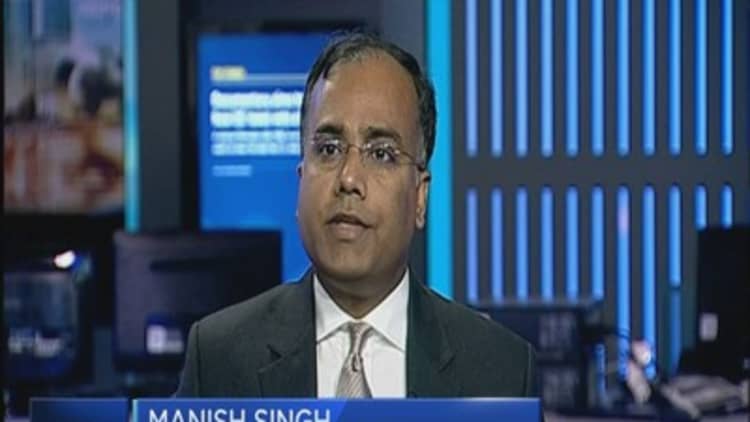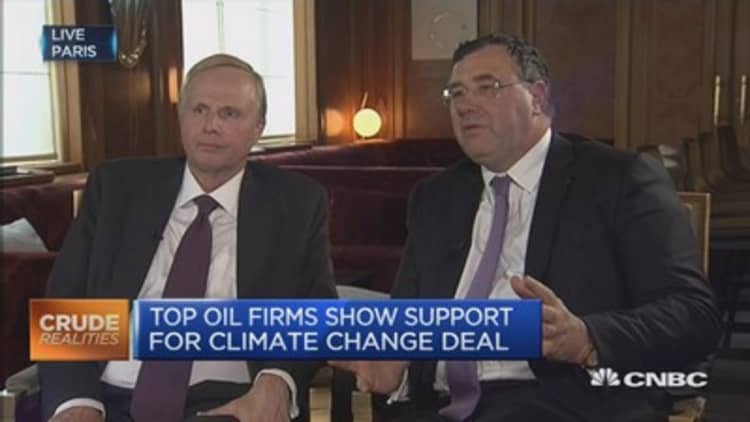


The European Central Bank's governing council is to ditch chilly Frankfurt for the Mediterranean island of Malta this week for its regular monetary policy meeting. As ECB President Mario Draghi and policymakers enjoy the warmer climate, one subject that is expected to come up is whether the bank needs to turn up the heat on its 1 trillion euro ($1.1 trillion) bond-buying program.
Draghi has already dropped hints that the central bank's quantitative easing (QE) program will be extended beyond its September 2016 putative deadline, sparking speculation among economists as to if and when the move might be announced.
"We will fully implement our monthly asset purchases of 60 billion euros… They are intended to run until the end of September 2016, or beyond, if necessary, and, in any case, until we see a sustained adjustment in the path of inflation that is consistent with our aim of achieving inflation rates below, but close to, 2 percent over the medium term," Draghi said last month at his regular media briefing.
The massive QE program was launched in March this year to help push inflation back towards the targeted 2 percent level and boost liquidity in the 19-country euro zone.
However, bank lending remains low and prices in the euro area fell by an average of 0.1 percent in September. Growth remains uneven, with the economies of Italy, Greece, Finland and Austria seen expanding by less than 1 percent this year.
Sadly, for those hoping for excitement from Malta, any extension announcement is viewed as unlikely.
Economists at BNP Paribas, for instance, expect a move to be announced in December 2015, following a forecast further decline in the euro versus the U.S. dollar.
"We expect no policy change at Thursday's ECB meeting, but look for EURUSD to fall to lower levels," Michael Sneyd and Charlotta Puhringer said in a BNP Paribas note last week, recommending a short EURUSD position at 1.145, targeting 1.090.
Vasileios Gkionakis, global head of foreign exchange strategy at UniCredit Research, also forecast a decline in EURUSD and an extension to quantitative easing being announced in early 2016.
"Intra-meeting developments so far have not been sufficient, in our view, for the central bank to pull the trigger on QE2… But we believe that ECB President Mario Draghi will formulate dovish rhetoric to avoid any further appreciation in the exchange rate, which would result in a tightening of financial conditions," he said in a research note on Friday.
Grounds for extending QE would include inflation that remains near zero, economic growth concerns and external risks from a slowing China, stock market instability and the crisis in Syria and the Middle East.
On the flip side, oil prices remain low, which is a boost for the predominately energy-importing euro zone countries. Plus, confidence indicators remain surprisingly solid, with the official Economic Sentiment Indicator for the euro area rising 1.5 points to 105.6 in September.

ING's Carsten Brzeski said that although the macro climate did not appear to justify more QE, the ECB faced a "communication trap" because of speculation about further action.
"While doing nothing would somewhat thwart the official line that QE was started to fight deflation, stepping up QE could bring back inner controversies and distort the unity within the Governing Council," the ING chief economist for Germany and Austria said in a note on Monday.
RBS macro credit and rates analysts forecast that the ECB's QE program could be extended by six months to March 2017.
"On Thursday, the ECB may decide to keep policy on hold, while setting the scene for an expansion of QE before the end of 2015. We expect acknowledgements of the growing economic headwinds and downside risk to inflation," said analysts led by Alberto Gallo, RBS head of macro credit research, in a note on Monday.
He added that the ECB might also opt to diversify its purchases into bank loans, securitizations and non-financial corporate bonds — and potentially even equities.
State-backed names that could be added to the ECB program include France's EDF and GDF Suez, Deutsche Telekom and Orange, Gallo said.
Irrespective of the decision from the ECB, this week will be a busy one for central bank watchers. A dovish statement is expected from the Bank of Canada after its policy meeting on Wednesday and Canadian federal elections on Monday. Meanwhile, the Bank of England will publish a paper on stress testing the U.K. banking sector and Governor Mark Carney and Deputy Governor Andrew Bailey will testify to a Treasury Select Committee about a bill designed to improve the central bank's governance and accountability.
— By CNBC's Katy Barnato. Follow her on Twitter @KatyBarnato.





